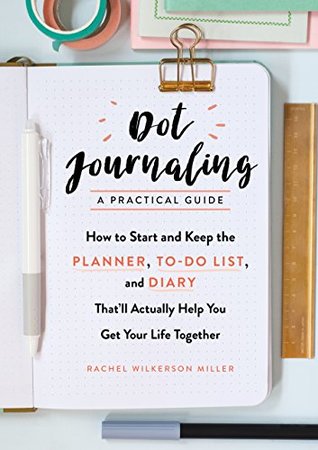More on this book
Community
Kindle Notes & Highlights
Read between
June 30 - July 1, 2018
our tasks, habits, and routines actually reveal a lot about what we prioritize, what we aspire to, and who we are.
being organized is one way I practice self-care.
Writing in a diary is, at its core, a declaration that your voice matters.
finding your voice in private makes it much easier to find your voice in public.
The items you’ll jot down in your dot journal mostly fall into three categories: tasks, events, and notes.
I’m not saying you should create an index entry for every time you trash-talk someone or something . . . but I’m not saying you shouldn’t do that, either.
Dot journaling takes up as much or as little time as you want it to. The initial setup takes less than an hour, and I tend to write in mine for ten to thirty minutes each night.
Beyond that, I spend about ten or fifteen minutes every Sunday setting up my new weekly spread, and about thirty minutes each month creating new pages for the upcoming month.
core reasons for dot journaling: organization, self-reflection, self-improvement, and getting stuff done.
Keepers of private notebooks are a different breed altogether, lonely and resistant rearrangers of things, anxious malcontents, children afflicted apparently at birth with some presentiment of loss. —Joan Didion
In the journal I do not just express myself more openly than I could to any person; I create myself.
The journal is a vehicle for my sense of selfhood.
The commonplace book originated in the fourteenth century, when it was known as a zibaldone, which is Italian for “a heap of things.”


